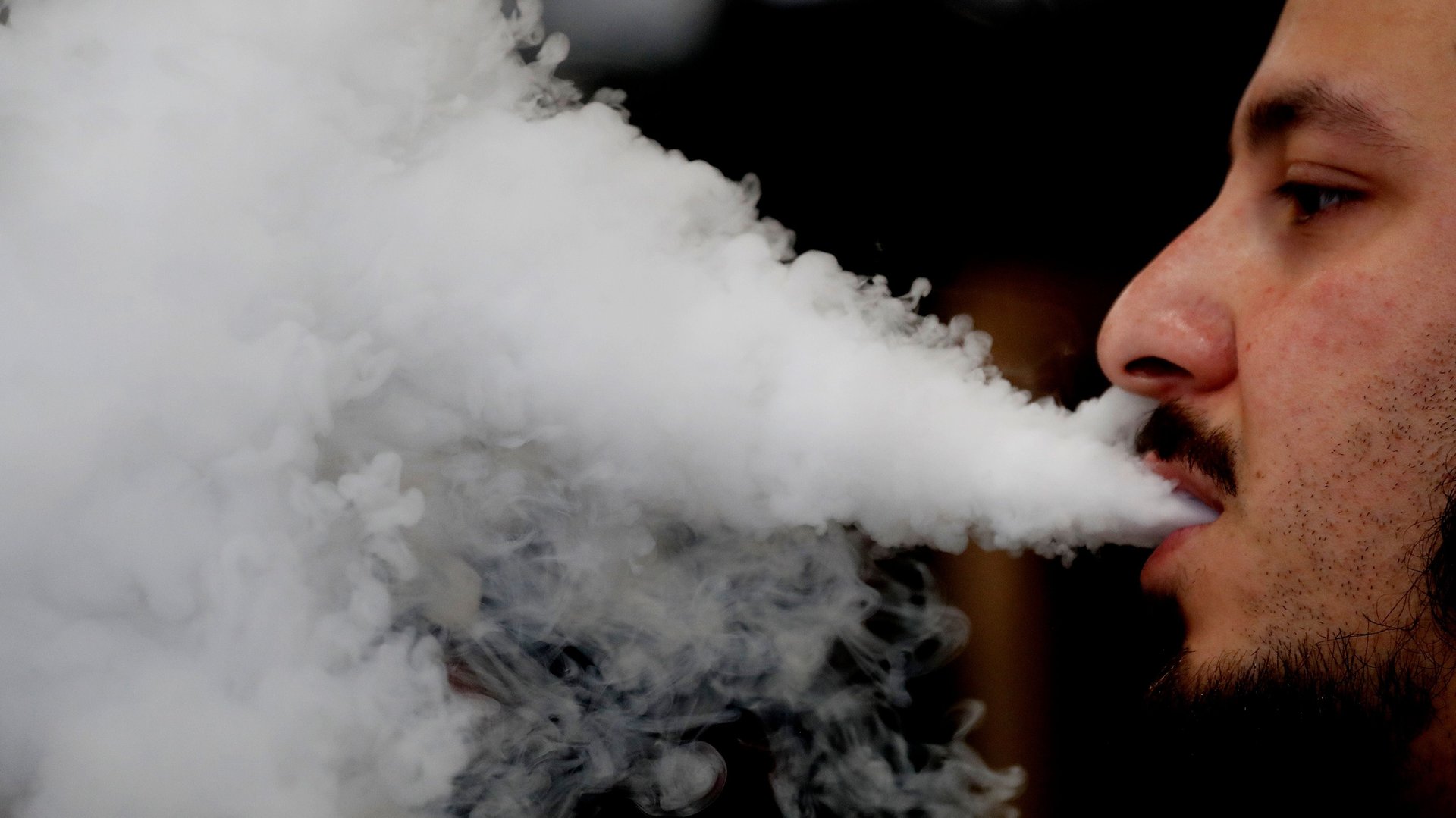The sweetness of e-cigarette flavors is more likely to get teens hooked than the nicotine
As of today (Sept. 28), Juul Labs and four other e-cigarette companies have 44 days left to prove to the US Food and Drug Administration that they can keep their products away from minors; otherwise, they risk them being pulled from the market. FDA commissioner Scott Gottlieb emphasized in the initial press announcement: “We cannot allow a whole new generation to become addicted to nicotine.”


As of today (Sept. 28), Juul Labs and four other e-cigarette companies have 44 days left to prove to the US Food and Drug Administration that they can keep their products away from minors; otherwise, they risk them being pulled from the market. FDA commissioner Scott Gottlieb emphasized in the initial press announcement: “We cannot allow a whole new generation to become addicted to nicotine.”
But research suggests it’s not the nicotine in e-cigarettes that’s the secret sauce—it’s the sweetness.
A team of researchers from the Yale University School of Medicine published the study in European Neuropsychopharmacology, exploring the effect of nicotine, sweet flavors, and the combination of the two in e-cigarettes. Participants were given colored e-cigarettes that contained “sweetened and unsweetened flavors with or without nicotine for two days each.”
The researchers found that sweetness was the most desired common denominator; that is, even a sweet-flavored e-cigarette with no nicotine was preferred over one without the sweetness, and with nicotine. This was also reflected in neural responses: Even without being presented an actual e-cigarette to smoke, participants’ brains responded more to cues that were associated with sweetness.
And if adolescents first start smoking unflavored vapes with nicotine, the addition of sweet flavors could make them continue. “Young people prefer the fruity flavors… If you add sweetness on top of nicotine in the long run, it may increase the risk of picking up e-cigarettes,” Nils Kroemer, a doctor at the University of Tübingen who used to be on the Yale research team, told Quartz. Kroemer said the combination of sweetness and nicotine increases the “addictive liability” of the product, making users want and like it more. Sweet flavors in and of themselves do not lead to addiction.
Flavors have been a huge point of controversy for e-cigarette companies like Juul. There are over 7,000 unique flavors on the market, and Dana Smith points out in Medium that flavor is the second-biggest reason teens try vaping after curiosity. Another recent study found that more than 75% of teen and young-adult vapers would no longer use e-cigarettes if they didn’t come in flavors. Flavored cigarettes have been banned since 2009, but since vapes are not technically cigarettes, the companies behind them can still sell flavored products. When asked for comment, Juul provided a statement outlining how committed the company is to working with the FDA to reduce teenage vaping.
Sweetness has long been shown to elicit the pleasure response by activating the dopamine reward system, which is also what happens with drugs like cocaine. In the food industry, large companies have previously calculated the “bliss point,” the optimal sugar content in food to make customers want more. While there is no evidence that e-cigarette companies conducted similar research, Kroemer said the “positive associations of sweet tastes” still apply. Furthermore, sweetness can help counteract the “intense” flavor of nicotine, he added.
Adam Leventhal, a professor of preventive medicine at the University of Southern California, pointed out to Medium that “the first time you try a tobacco product, the extent to which you like it or not will be a big determinant as to whether you’ll continue.” And if the taste of nicotine is masked from the beginning, vapes can hit the sweet spot.